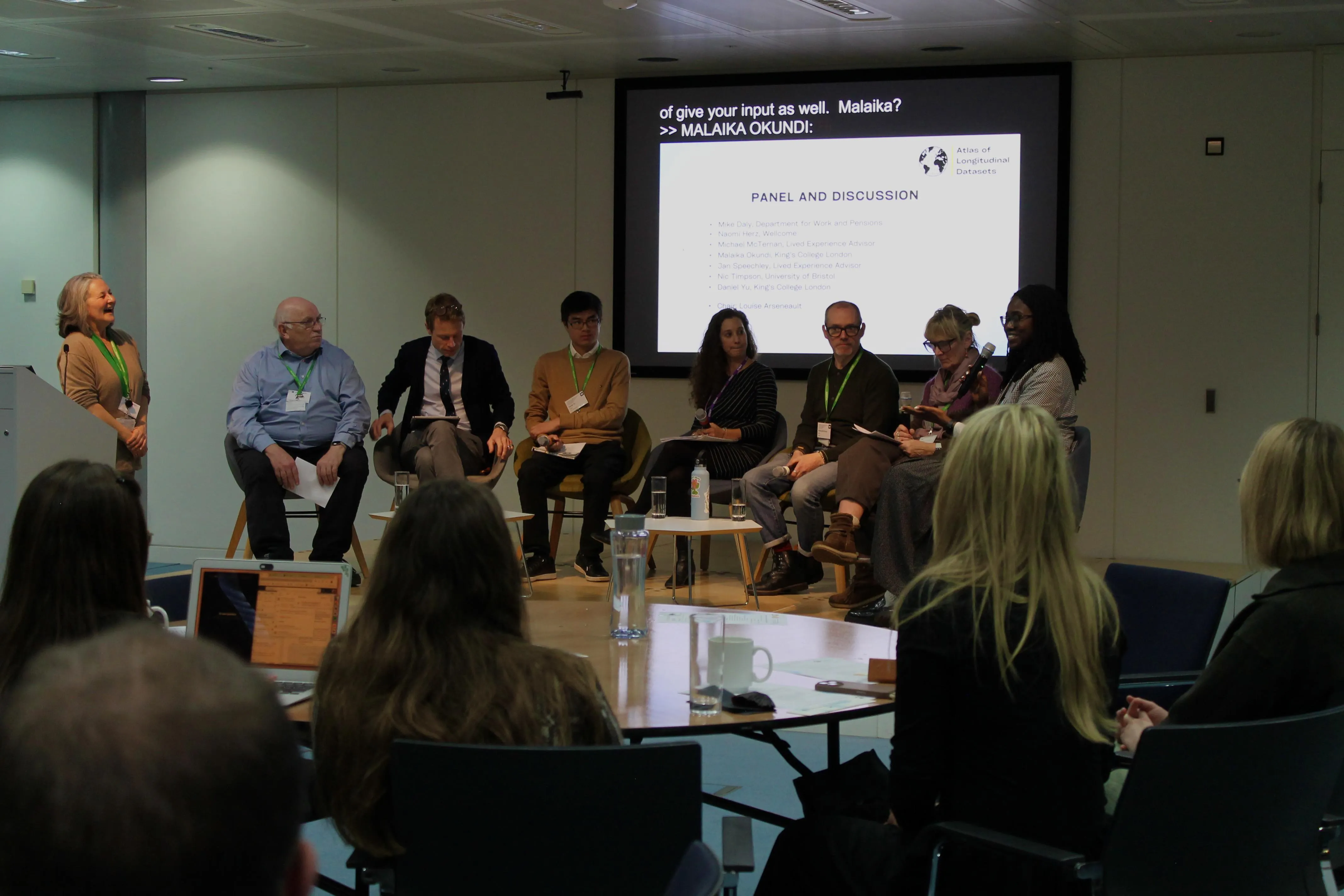We are thrilled to launch the new Atlas of Longitudinal Datasets. Longitudinal research holds so much potential for advancing our understanding of the development, progression and treatment of mental health conditions. By bringing together these datasets into one centralised platform, we hope the Atlas will become a widely used tool for researchers, funders and policymakers, enabling them to discover and utilise this critical data.
Professor Louise Arseneault, Principal Investigator and Professor of Developmental Psychology at King’s IoPPN
23 January 2025
King's launches the Atlas of Longitudinal Datasets to support mental health research
Researchers at the Institute of Psychiatry, Psychology & Neuroscience (IoPPN) at King’s College London have launched a new free platform to allow people to discover hundreds of longitudinal mental health datasets, in partnership with Wellcome, MQ Mental Health Research and lived experience experts.

The new Atlas of Longitudinal Datasets allows researchers, governments, funders and members of the public to find over 1,600 datasets using a designated search engine.
The platform includes features to visualise data sources on a map, compare multiple datasets, and apply filters to identify datasets most relevant to specific research questions.
It has potential to improve our understanding of mental health by:
- Making it easy for researchers to discover longitudinal datasets from across the world to help answer questions about mental health
- Allowing funders to identify gaps in research to guide resource allocation
- Informing evidence-based policy development and public health monitoring
- Making existing datasets more visible to promote collaboration and reduce duplication of research
In total, more than one billion participants are represented across the datasets. Datasets are from 186 countries across six continents, and around 25 per cent of them include at least one low- and middle-income country.
The platform contains information about sample size, participant demographics, data sharing policies, type of data collected, mental health topics studied, and lived experience expert involvement. Researchers are continuing to expand the platform by adding new datasets.
The Atlas was launched at Wellcome on 22 January 2025. Principal Investigator, Professor Louise Arseneault shared the journey of building the Atlas and its applications in research, followed by a live demonstration by Dr Bridget Bryan, Research Associate at the IoPPN. The event concluded with panel discussion with researchers and lived experience experts.

The new Atlas follows the extensive Landscaping International Longitudinal Datasets project, commissioned by Wellcome in partnership with MQ, the Open Data Institute and lived experience experts. The research team conducted a global search and review of large-scale longitudinal datasets with potential to facilitate mental health research, identifying over 3,000. The Atlas hosts this information to make it more discoverable to researchers around the world.
As a black African, this project helped me communicate what the mental health landscape looks like where I come from - which is sometimes stereotyped and misunderstood. Lived experience advisors remain critical in understanding mental health in communities working towards decolonisation of the understanding of mental health and wellness.
Anonymous lived experience expert
Explore the Atlas of Longitudinal Datasets which was funded by Wellcome and can be accessed for free.
For more information, please contact Milly Remmington (School of Mental Health & Psychological Sciences Communications Manager).

